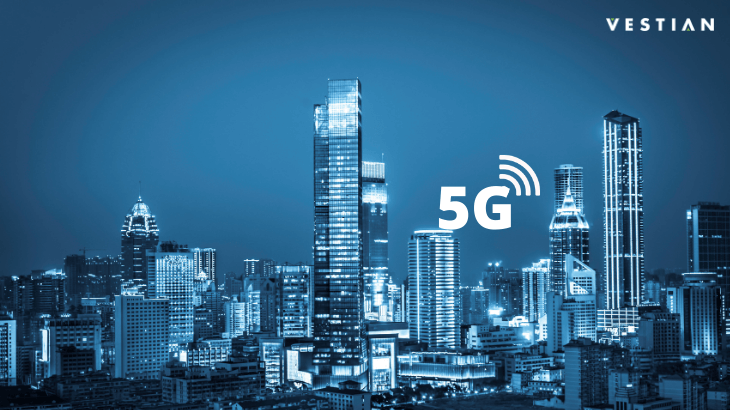Use of 5G in commercial real estate is set to change not only how we manage buildings but also upgrade the potential for workplaces, industry and urban applications. This wireless technology is designed to deliver data speeds greater than one gigabit per second and latency of less than one millisecond, which means 5G is not only fast, it is 100 times faster than the existing 4G networks. This enables faster transfer of more information containing high definition content. In addition, 5G enabled devices will have the ability to connect to 100 times more devices at any given time. This exponential increase in connectivity is significant for the real estate sector as it will enable IOT like never before.
A direct fallout, would be an exponential growth in the IOT device market. These devices are used to monitor and control mechanical, electrical, electronic and practically every other system in buildings. This means that the building can connect thousands of IOT devices at the same time, all giving real time information on their functioning, allowing property managers and CRE owners alike, to really understand how their buildings are operating in real time. While how to increase the battery life on the sensors is yet to be figure out, what is relevant is that 5G connections require much less energy, as much as up to 90% less. This will lead to lower energy consumption, reducing operational costs. 5G is also expected to yield good returns, as faster and more efficient building management will boost returns for private real estate owners, also helping them improve their sustainability performance. In fact, benefits of 5G will not be limited to newer buildings, it can also add value to older assets, although these will need to be retrofitted.
While the rollout of 5G has been slow, it has gone live in South Korea, China, the UK and several other nations, the US too has seen limited traction. The 1st country to launch 5G network was South Korea, where a telecommunications company opened a 5G based smart office in Seoul.
While there is no doubt that 5G will be at the forefront in driving industrial automation, but it will also pave the way for newer use cases such as augmented and virtual reality and would be a key enabler to building smarter cities.
The potential effects of 5G though considerable, are yet to be realized. A new report from the Boston Consulting Group states that a wider rollout of 5G, may end up contributing $1.4 trillion to $1.7 trillion to the U.S. GDP while also potentially creating 3.8 million to 4.6 million jobs in the next decade in the US alone. Just imagine the opportunities it would unlock worldwide.

